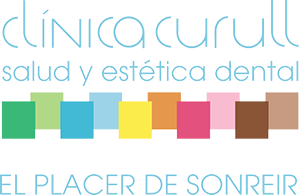TREATMENTS BASED ON SCIENTIFIC EVIDENCE WITH A PERSONAL AND CLOSE TREATMENT
Periodontics is the speciality of dentistry that encompasses the prevention, diagnosis and treatment of gum diseases. The most frequent periodontal diseases are Gingivitis and Periodontitis, commonly known as “pyorrhoea”.
Periodontal diseases affect the tissues that surround and support the teeth due to an infectious cause. If the bacteria from the mouth are not removed in time, they can get inside the gums and cause bone destruction around the tooth in a painless way. Sometimes the periodontal disease can cause tooth loss if it is not treated in time.
SIGNS AND SYMPTOMS OF PERIODONTAL DISEASE
- Red or swollen gums
- Bleeding gums
- Long teeth sensation
- Bad breath or taste in your mouth
- Gingival discomfort
- Retraction of the gums
- Dental mobility
- Sensitivity to cold

Gum problems are not a natural ageing process before which nothing can be done, if the appropriate treatments are carried out and the recommendations of the specialist are applied constantly, it is possible to recover normality. Treatment is based on mechanical disinfection with manual or ultrasonic instruments. It is not a painful treatment and can be performed under local anaesthesia if desired.
WHAT YOU NEED TO KNOW ABOUT PERIODONTITIS
- It is not an ageing process that you cannot do anything about.
- It affects practically the entire population and is the leading cause of tooth loss in adults, ahead of caries.
- It can be contagious between susceptible people and is hereditary.
- It can affect and damage other areas of the body, such as increasing the risk of a heart attack.
- Mouth rinses and meticulous brushing are not enough to control periodontitis.
- It can be cured but it is difficult to recover lost bone, so it is essential to detect it as soon as possible.
Frequent Questions
Is periodontitis curable?
The treatment manages to stop the periodontal disease indefinitely with the consequent maintenance of the teeth. In practice, it is possible to understand how to cure, with the nuance that we can’t forget to carry out regular maintenance visits, according to the protocol established by our periodontist. Otherwise, the disease reactivates again.
Sometimes total control is not achieved and in this case, the disease progresses although more slowly than without treatment. These cases are aggressive periodontitis, smokers of more than one pack a day or patients with systemic diseases such as diabetes.
Is periodontal disease contagious?
Periodontal disease is a disease produced by bacteria and as such can be spread. Research studies have shown that people who live with a periodontal patient for years are more likely to develop the disease. The most susceptible relatives would be children and stable partners, and the vehicle of transmission would be saliva. If you suffer from Periodontitis, it is advisable for your relatives to perform a simple examination with the periodontist to rule out the affectation.
Is periodontal disease hereditary?
The trigger for periodontal diseases is bacterial plaque. However, these bacteria do not affect all people equally. Often, people who suffer from Periodontitis, especially in the most severe forms, may have genetic predisposing factors.






